This blog compares Dayara Bugyal and Kedarkantha Treks to learn about both treks uniqueness, differences, and specialties, suitable times to visit, nearby places, and cultural and historical significance.
Both trek has their own unique charm and significance when it comes to trekking.
Dayara Bugyal impresses with its beautiful meadows, forest trail, and Gangotri and Saraswati peaks view while Kedarkantha stands out for its accessibility, dense forests, and cultural immersion. Both are unique, providing unforgettable experiences.
But there are some differences between the treks; let’s learn about them.
| Info | Dayara Bugyal | Kedarkantha |
| Location | Uttarkashi, Uttarakhand | Uttarkashi, Uttarakhand |
| Base Camp | Raithal Village | Sankri Village |
| Height or Altitude | 11,938 ft | 12,500 ft |
| Trek Distance | 22-24 km | 20 km |
| Grade | Level 2 | Level 2 |
| Age | 7+ | 7+ |
| Duration / Days | 3 to 4 days | 4 to 5 days |
| Health Requirement | 5 km in 30 minutes | 5 km in 30 minutes |
| Avg Cost | 6000 to 7000 rupees | 6000 to 7000 rupees |
| Popularity Level | It Is popular and is gaining Popularity day by day | Already popular |
| Permit | Via Explore Uttarkashi Portal | Via Forest Checkpost in Sankri |
Scenery & Natural Beauty
Dayara Bugyal:
Raithal, the starting point, not only offers access to breathtaking natural beauty but also provides excellent amenities. Raithal allows you to explore the region’s rich history, including ancient structures like Panchpura and temples. The trek features abundant water sources and springtime Rhododendron blooms.
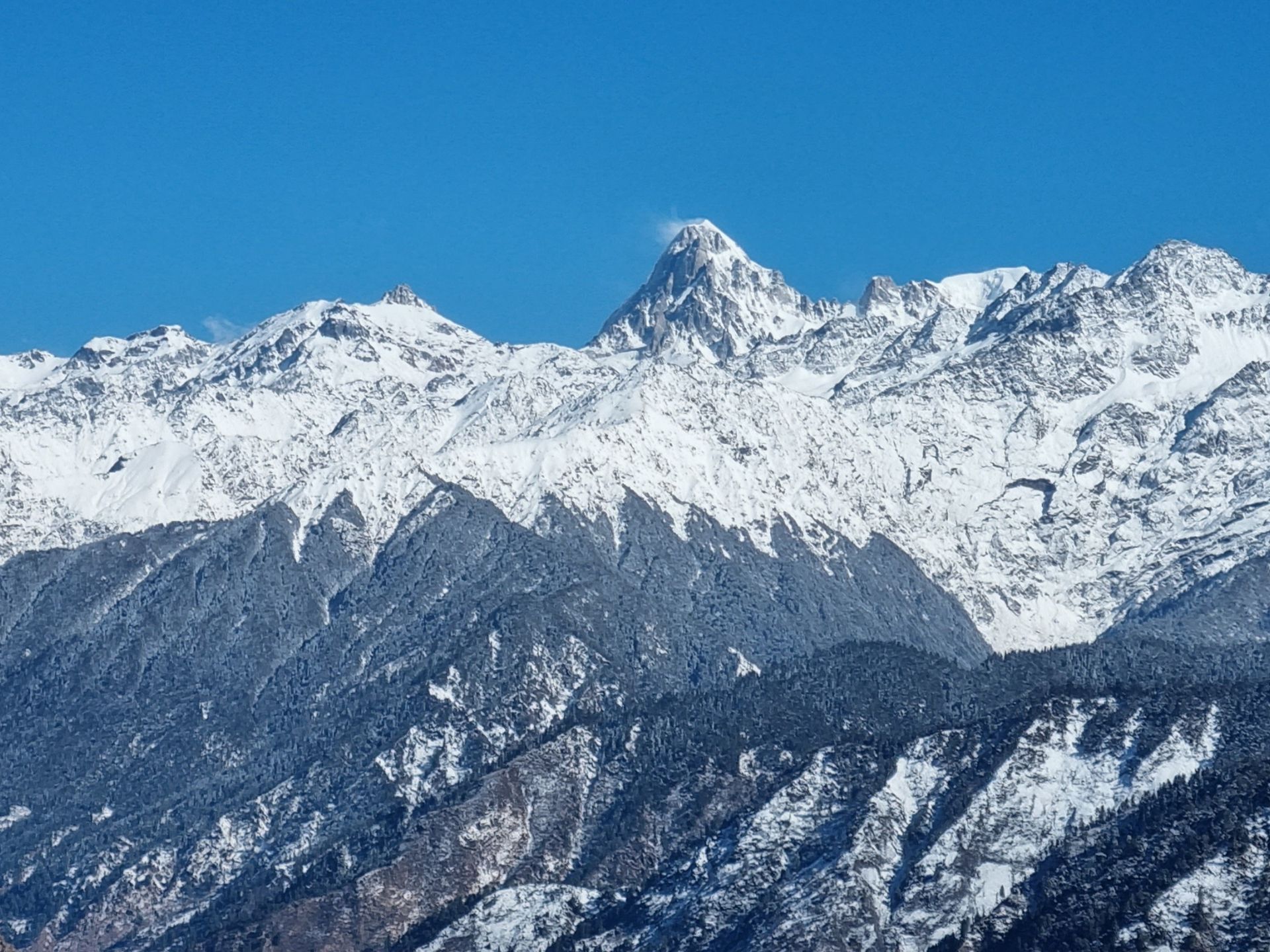
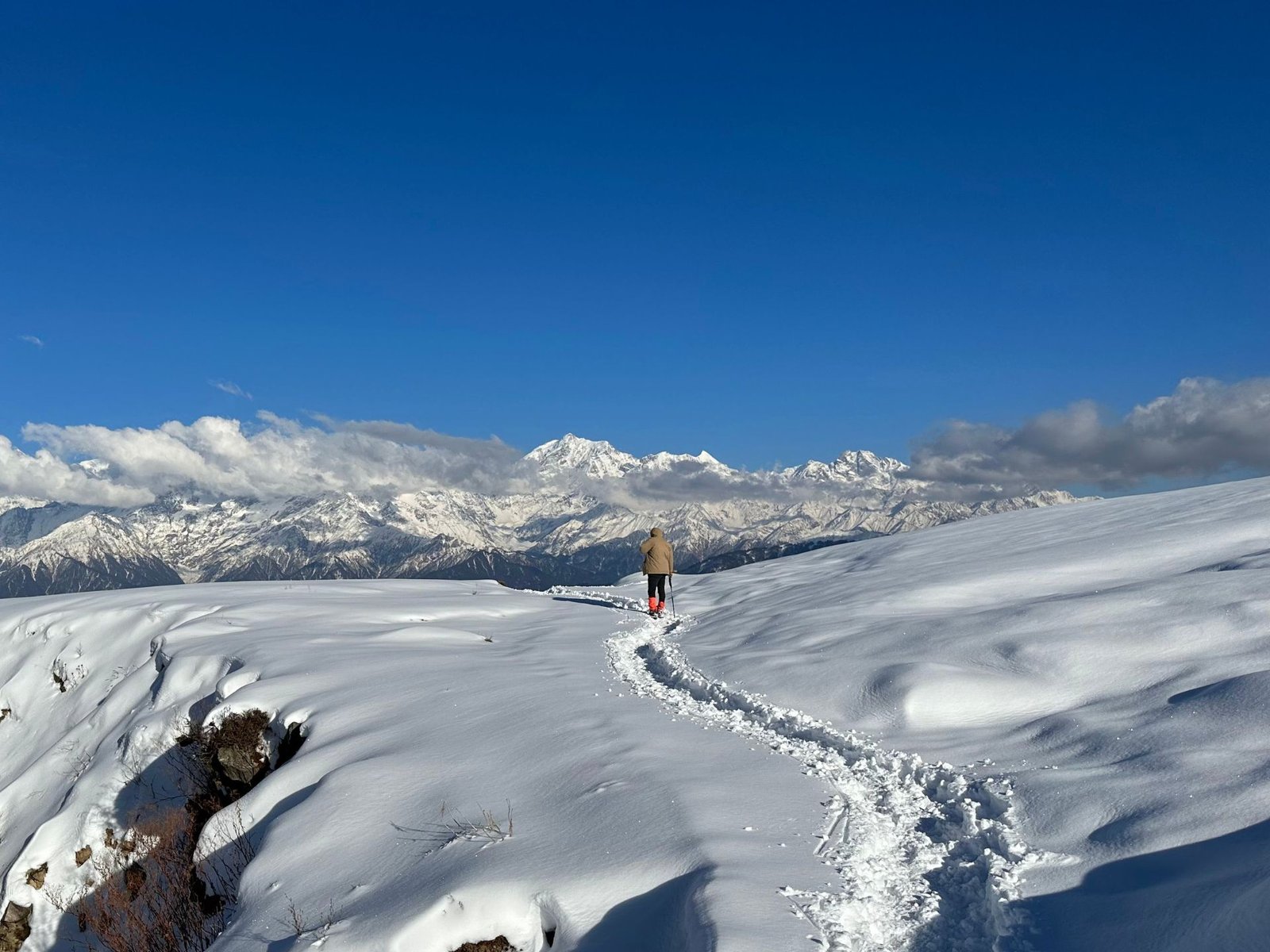
The forest canopy creates beautiful patterns as sunlight filters through, while ancient oaks and deodars stand as storytellers.
Like characters taking the stage, you will see snow-covered peaks emerging from the mist. The meadows reveal themselves like pages of an open book with every step.
Water Streams accompany us like a harmonious chorus, and the mountains share their secrets as we ascend. The Himalayan panorama surrounds us at the summit, and we become part of this captivating story.
Dayara Bugyal has a lot of hidden gems, a few of which we have shared in this article, ‘Surprising Facts about Dayara Bugyal‘.
Kedarkantha:
Kedarkantha in Uttarakhand, India, is a fantastic trek. It’s in the snowy Himalayas and lets you explore the local culture. In winter, you’ll see beautiful forests, snowy peaks, meadows, and frozen lakes.
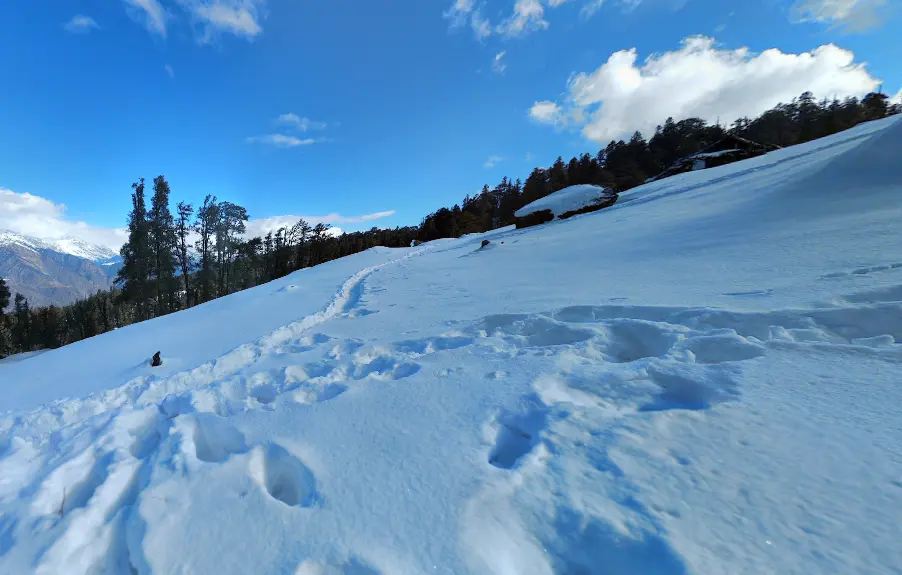
Trekkers connect with friendly villagers, and stargazers enjoy the night sky. It’s not just a trek; it’s a spiritual journey. The trails are both accessible and challenging, and it’s like a winter wonderland.
Due to the Heavy snowfall from December to January, the trail to Kedarkantha Peak will sometimes be challenging. You can feel close to nature, find inner peace, and appreciate the beauty of the Himalayas in Uttarakhand. Kedarkantha is a unique place where spirituality and nature unite, creating an extraordinary experience.
Difficulty Level
Dayara Bugyal Difficulty
Beginners or 1st time trekkers can do this trek as it is an easy trek. Dayara bugya is a great choice even for non-trekkers to start their trek journey and enjoy the scenic beauty of meadows surrounded by mountains.
Although there aren’t any difficult parts, there are a few parts of the hike that can be difficult. Dayara Bugyal is the least dangerous high-altitude trip (trembling climbing beyond 11,000 feet) on our list.
Kedarkantha Difficulty
The difficulty level is easy to moderate, except for the summit climb. The summit climb day takes longer than other days; hence, one has to be fit and active.
Trails are gradual, steady, and uneven throughout the trek, and on the summit day, one has to be careful about altitude sickness as we go towards the peak of Kedarkantha.
The hike then reaches a peak elevation of 12,500 feet. Because of this, it is perfect for novice hikers and those who want to avoid a strenuous walk.
Weather & Seasons Info
Dayara Bugyal:
| Autumn | Pleasant and cool weather. Clear skies and comfortable temperatures during the day. Ideal for trekking with colorful landscapes. Clear skies and views of Gangotri and Saraswati Ranges. |
| Summer | Mild to moderately warm temperatures. Blooming Rhododendrons add colors to the forest trail. Great for nature enthusiasts and trekking in comfortable weather. The perfect season for bird watching. |
| Rainy Season | Monsoon season brings heavy rainfall. The meadows and surroundings turn lush and green. A lot of wildflowers can be found in Dayara. Trekking during this time can be challenging due to muddy and slippery trails. This can be done during monsoon if you like greenery, rain, and flowers. |
| Winter | Cold and snowy conditions. The meadows are covered in snow, creating a winter wonderland. Attracts tourists interested in skiing and snow-related activities. Clear skies and views of Gangotri and Saraswati Ranges. |
| Spring | Transition season with warming temperatures. Snow begins to melt, revealing lush green meadows. Offers a mix of winter and spring beauty. |
Dayara Bugyal experiences significant weather changes throughout the year, offering a unique and appealing atmosphere each season. In particular, the snowy winters draw in tourists, including skiing enthusiasts, looking to enjoy the picturesque snowy landscapes.
| Seasons | Avg Temperature |
| September–October | 10°C to 20°C |
| November–February | 10°C to -5°C |
| February- March | March- May | June- July | -5°C to 10 °C | 10°C to 15°C | 15°C to 25°C |
Kedarkantha:
| Autumn | Pleasant and cool weather. Clear skies and comfortable temperatures during the day. Ideal for trekking with colorful landscapes. The foliage begins to change color, adding vibrancy to the surroundings. |
| Summer | Pleasant and moderate temperatures. Alpine meadows come alive with a burst of wildflowers. Suitable for nature enthusiasts and those who enjoy trekking in comfortable weather. |
| Monsoon/Rainy Season | Monsoon season brings heavy rainfall, especially in July and August. The meadows and surroundings turn lush and green. Trekking during this time can be challenging due to muddy and slippery trails. It is not recommended due to the risk of landslides and difficult access. |
| Winter | Cold and snowy conditions. Heavy snowfall blankets the trekking route and the surrounding landscape. Ideal for snow trekking and winter adventure enthusiasts. The mesmerizing snow-covered landscapes make it a prime destination for those seeking a winter wonderland. |
| Spring | Transition season with gradually warming temperatures. Snow begins to melt, revealing lush greenery and blooming flowers. It is a mix of winter and spring beauty, making it an excellent time for photography. |
| Seasons | Avg Temperature |
| September–October | 1°C to 10°C |
| November–February | -10°C to 5°C |
| February- March | March- May | June- July | -5 °C to 10 °C | 10°C to 15°C | 15°C to 25°C |
Kedarkantha’s claim to fame is its winter season, offering some of India’s most pristine and scenic snow trekking experiences.
Expert Saying on Dayara Bugyal vs Kedarkantha
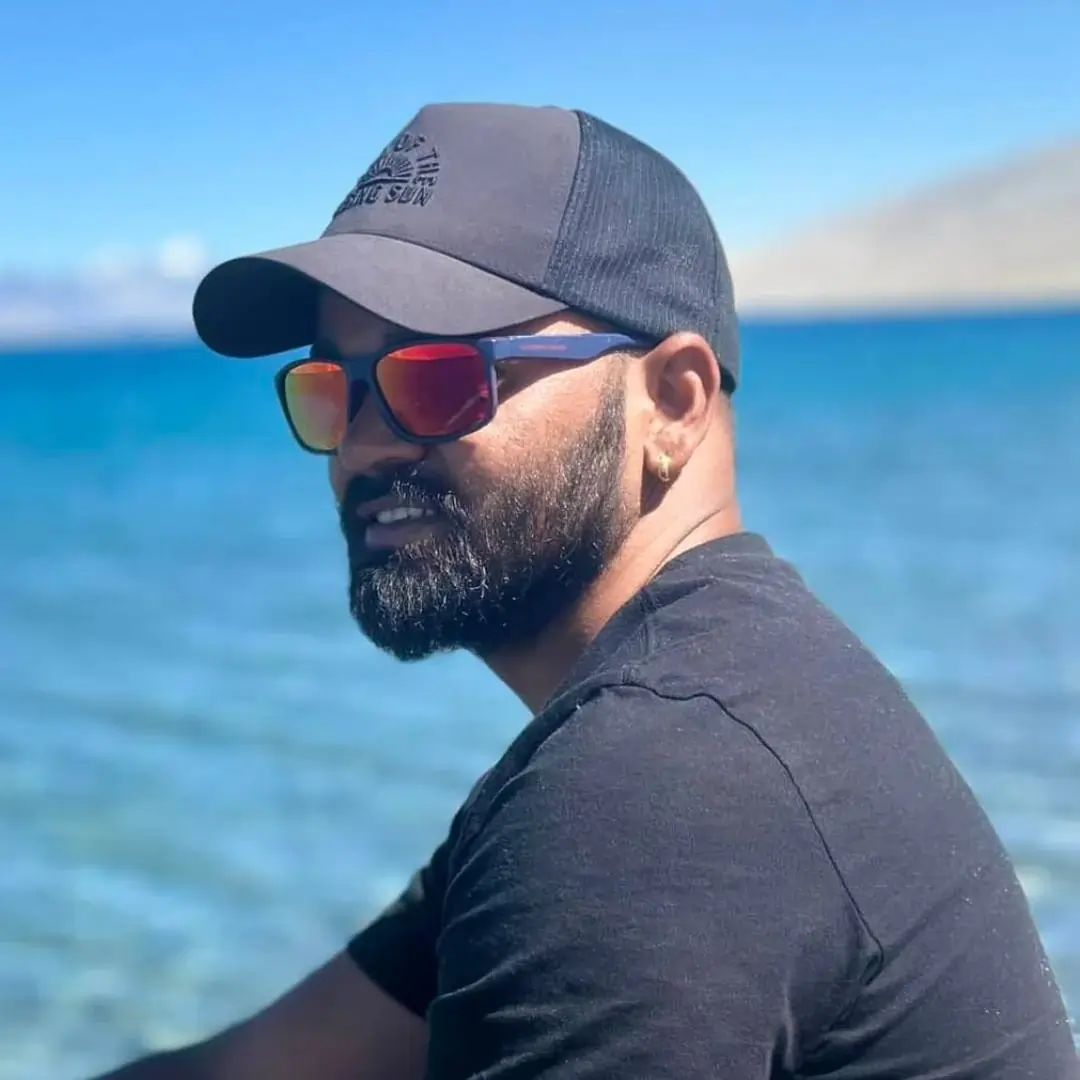
Sobhi Negi
– Founder
If I have to compare the two treks, then I will say both Dayara Bugyal and Kedarkantha are great treks; they are both famous winter treks in India based in Uttarkashi.
I will recommend Dayara Bugyal for beginners, and if you love meadows, this can be a great trek for you. For first timers and people who want to start their Himalayan Trekking journey, Dayara Bugyal is the best beginner friendly option. It’s even good for kids and families who want to experience peace.
Now, Kedarkanha is a very famous winter trek in India. Distance wise, both are the same, but difficulty wise, Dayara Bugyal is easier than Kedarkantha. There are a few factors that make it slightly harder than Dayara Bugyal;
1. Tough Terrain: The terrain of Kedarkantha is slightly more difficult than the Dayara Bugyal, which makes hiking a bit difficult.
2. Slippery Trails during Snowfall: While going to the summit in winter, the trails become slippery and tough to hike if there is good snowfall. Often, ice freezes there, making the trail more difficult. So, while trekking, we have to be very careful.
3. Also, the hiking distance is a little bit more in Kedarkantha as compared to Dayara Bugyal
But people prefer Kedarkantha more than Dayara Bugyal because people get to do the summit. As you see mountain ranges during the Dayara Bugyal trek, in the Kedarkantha trek, you do peak summits and feel that you have done proper mountain climbing. I think that’s the main factor people choose Kedarkantha over Dayara Bugyal.
Secondly, Kedarkantha is also popular for its beautiful sunrise; people start their trek early in the morning, from 3 am to 4 am, and wait for the sunrise.
On the other hand, Dayara Bugyal is done by people who have done winter treks like Kedarkantha or Brahmatal and want a new trek. People who are looking for lesser known place and meadow trek also prefer Dayara.
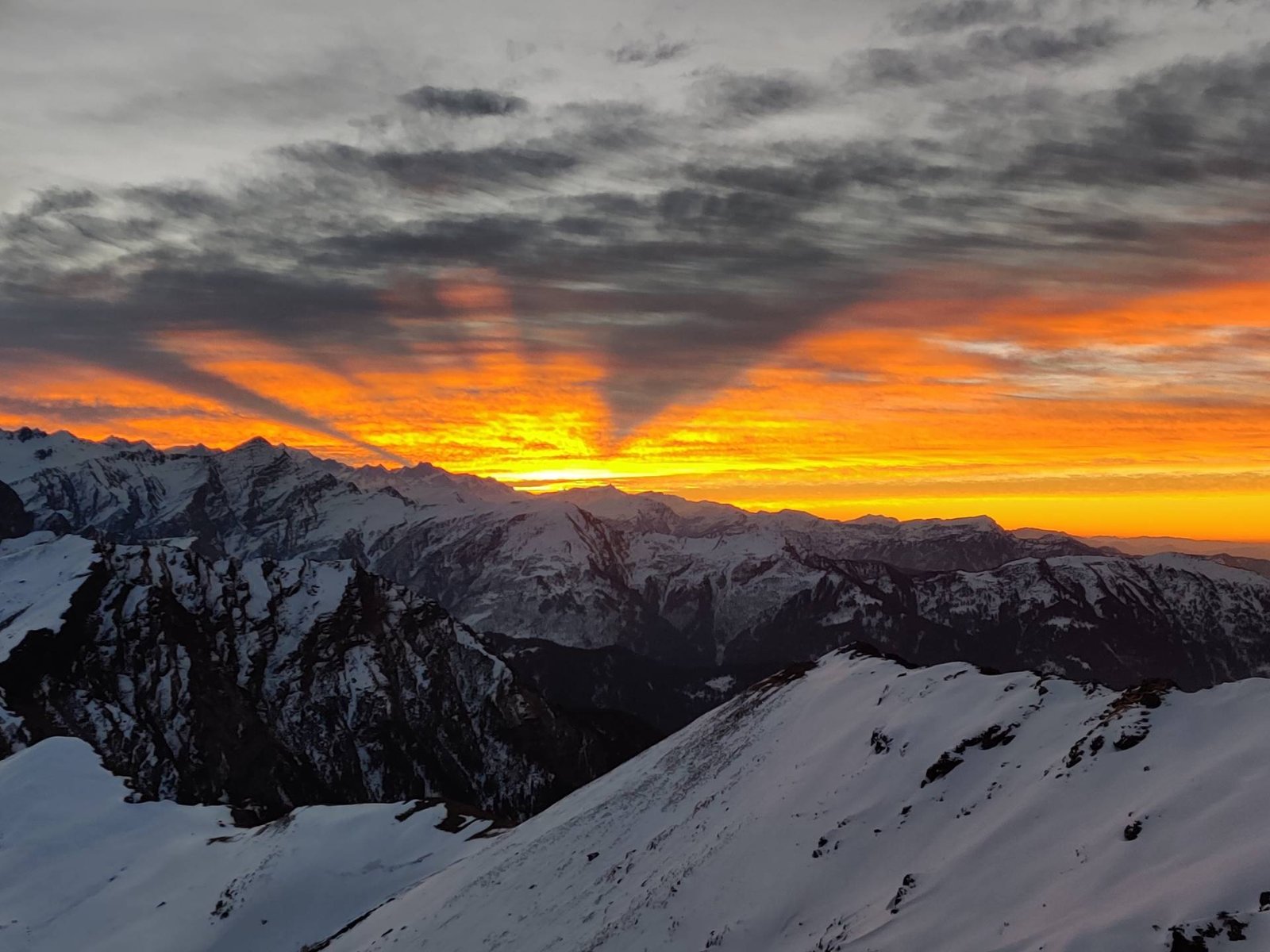

Guided vs. Independent Trekking
Dayara Bugyal
One can do solo trekking, but it will be a bit hard as one has to have one’s own camping equipment or knowledge of the trek route; hence, it becomes easy and hassle-free to take the help of a local trekking agent or guide to enjoy the trek and time rather putting all-time in arrangement and taking stress.
The journey becomes easier with a guide and agent; however, if one likes to do it solo, they can join fellow travelers along the route so that they don’t have to worry about the route, as the internet won’t be able to guide in hilly areas due to connectivity.
Lastly, we suggest having a guide who can plan your entire trip and provide necessary arrangements such as food, camping, equipment, and a first aid box handy for you.
Kedarkantha
It is not advisable to do 4-5 dates of the journey alone, especially when trekking in peak winter, as the situation becomes challenging when the temperature drops to -10 or 0 degrees.
One has to be very fit and have proper camping and clothing items to trek Kedarkantha. The trails become slippery during snowfall, and the terrain is tough, so solo trekking in Kedarkantha is not recommended for beginners.
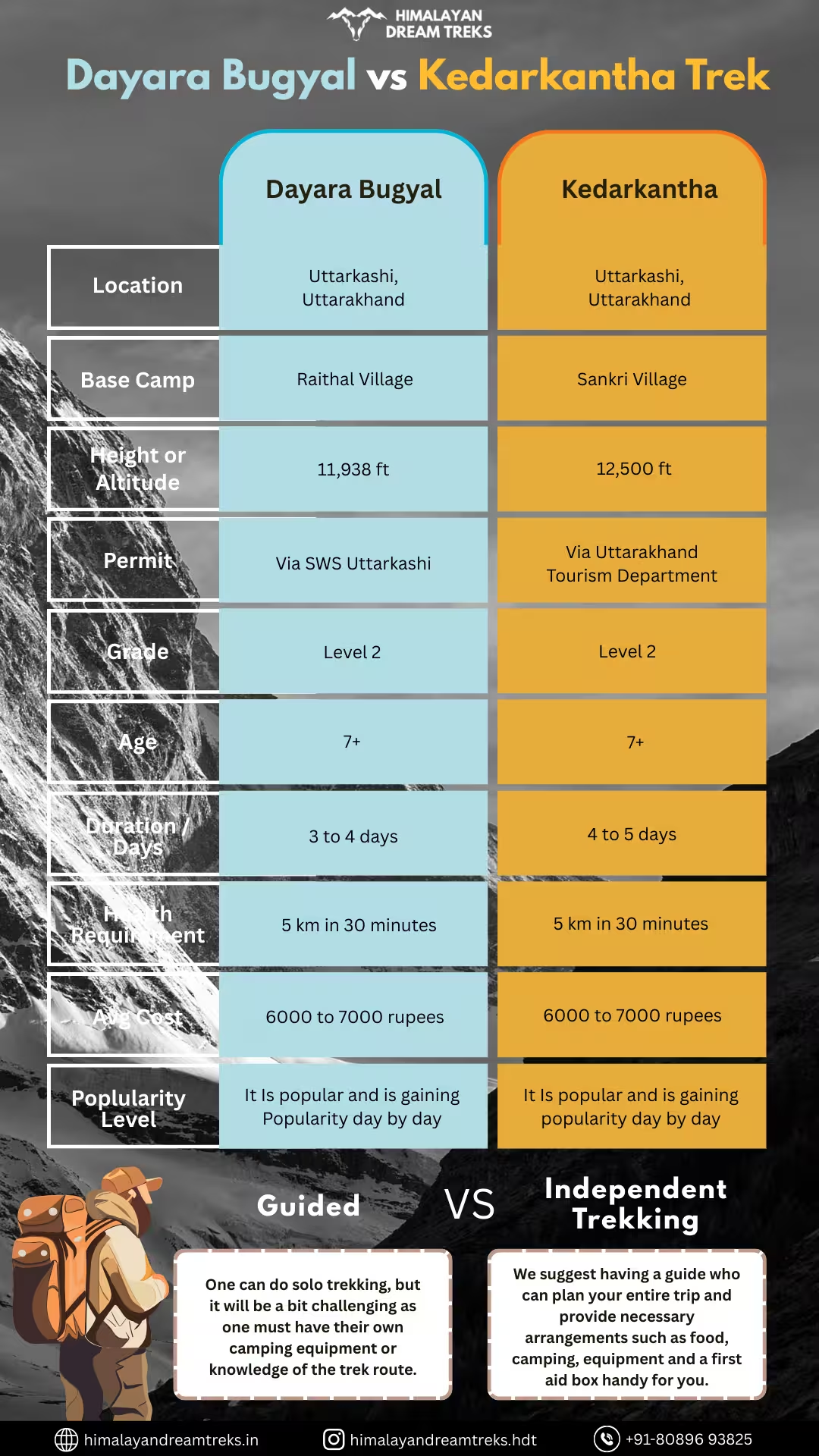
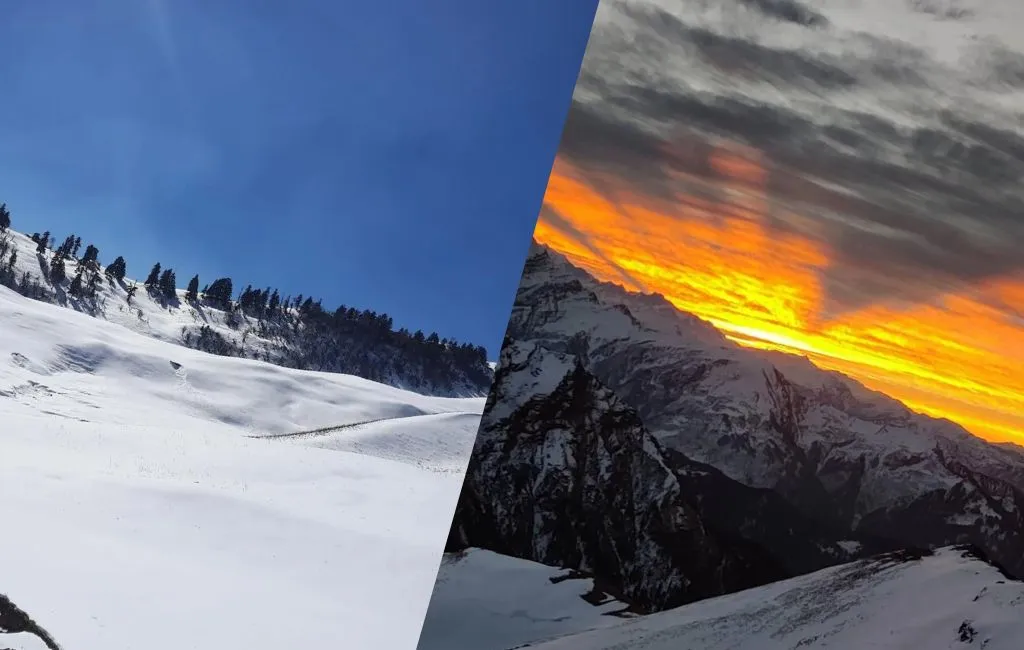
Leave a Comment